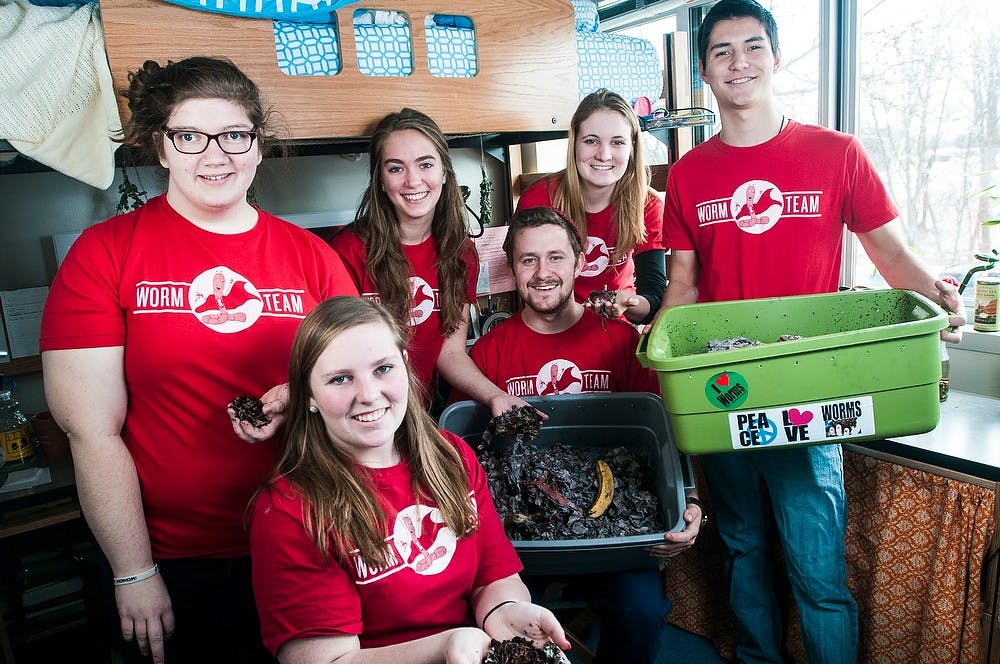MSU students in the Residential Initiative on the Study of the Environment, or RISE , are working with worms to compost food scraps from the Brody neighborhood cafeteria.
Fisheries and wildlife and environmental economics and policies sophomore Liz Brajevich was one of the students who received the $5,000 Be Spartan Green grant from the MSU Office of Campus Sustainability. That was when Brajevich’s idea of bringing vermicomposting to campus was first formed.
“We wanted students to learn not only about the vermicomposting but to participate in it, to learn how to care for it,” Brajevich said.
Vermicomposting is the practice of using earthworms to turn food waste into a nutrient-rich fertilizer, also known as worm castings. Using worms ensures a faster composting than other methods.
The RISE program now has a group of students volunteering to work with the invertebrates. The worm team has successfully composted 1,000 pounds of food waste since 2013 with the help of 15,000 worms. Brajevich said the creation of the team came from them wanting “to take advantage of the fact that people think that composting with worms is crazy.”
Brajevich said their main goal is to spread the excitement so they “have students willing to expand the program to other dorms on campus.”
Environmental studies and agriscience freshman Leah Desposato has a worm composting bin in her room. Like Desposato, other students of the RISE program have the opportunity to have worms in their living space.
“With our own personal food waste we feed the worms in our room,” Desposato said.
The worm bins’ dimensions are one foot by one foot and a half, with a depth of nine inches. The worm team is responsible for collecting buckets of food scraps, and tests the pH levels and electrical conductivity of the casting.
Fisheries and wildlife and environmental economics and policy freshman Eamon Devlin said he enjoys working with worms because “they offer a relatively simple and efficient way of composting.”
RISE director and natural science professor Laurie Thorp liked the idea ever since it was suggested.
“I think it is fantastic because it is in the residence halls and the students are exposed to composting and shows that MSU is committed to these kind of sustainable practices,” Thorp said. “It is a wonderful project because it is exposed by peers.”
The worm team is selling worm bins and material for vermicomposting.







